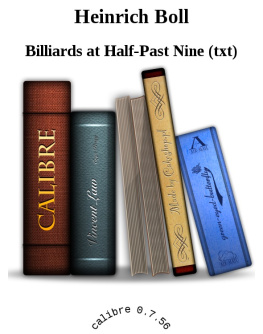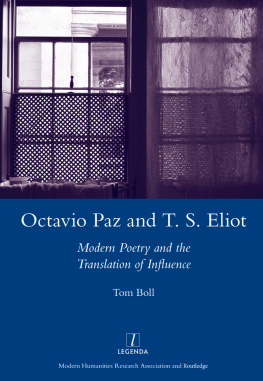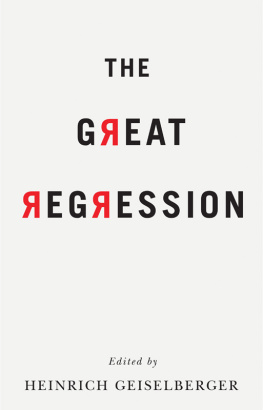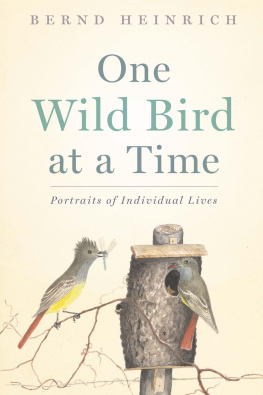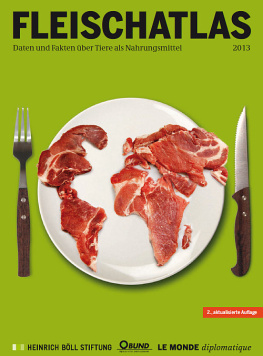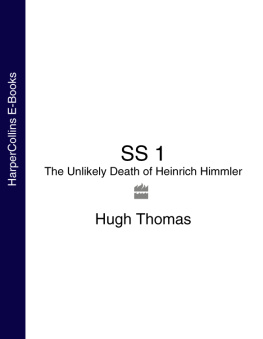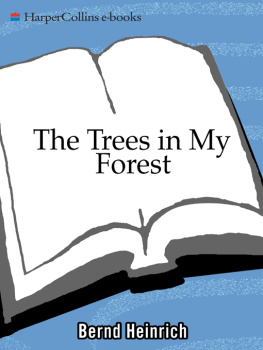Heinrich Böll - The Clown (The Essential Heinrich Böll)
Here you can read online Heinrich Böll - The Clown (The Essential Heinrich Böll) full text of the book (entire story) in english for free. Download pdf and epub, get meaning, cover and reviews about this ebook. year: 2010, publisher: Melville House, genre: Non-fiction. Description of the work, (preface) as well as reviews are available. Best literature library LitArk.com created for fans of good reading and offers a wide selection of genres:
Romance novel
Science fiction
Adventure
Detective
Science
History
Home and family
Prose
Art
Politics
Computer
Non-fiction
Religion
Business
Children
Humor
Choose a favorite category and find really read worthwhile books. Enjoy immersion in the world of imagination, feel the emotions of the characters or learn something new for yourself, make an fascinating discovery.

- Book:The Clown (The Essential Heinrich Böll)
- Author:
- Publisher:Melville House
- Genre:
- Year:2010
- Rating:3 / 5
- Favourites:Add to favourites
- Your mark:
- 60
- 1
- 2
- 3
- 4
- 5
The Clown (The Essential Heinrich Böll): summary, description and annotation
We offer to read an annotation, description, summary or preface (depends on what the author of the book "The Clown (The Essential Heinrich Böll)" wrote himself). If you haven't found the necessary information about the book — write in the comments, we will try to find it.
The Clown (The Essential Heinrich Böll) — read online for free the complete book (whole text) full work
Below is the text of the book, divided by pages. System saving the place of the last page read, allows you to conveniently read the book "The Clown (The Essential Heinrich Böll)" online for free, without having to search again every time where you left off. Put a bookmark, and you can go to the page where you finished reading at any time.
Font size:
Interval:
Bookmark:
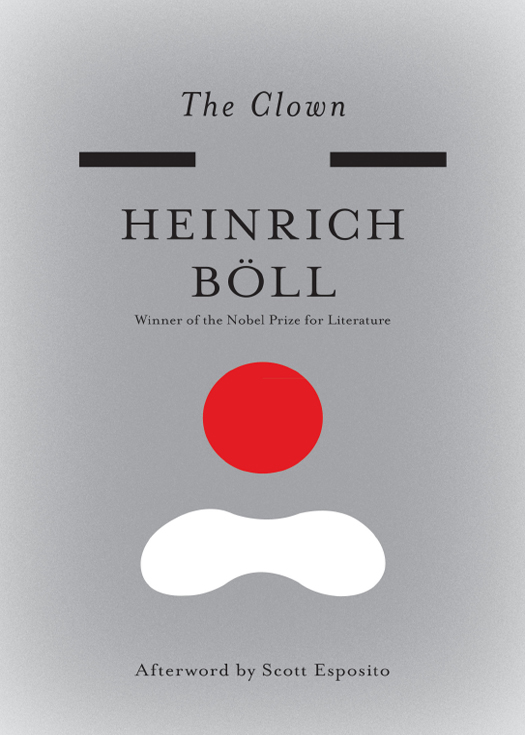
In 1972, Heinrich Bll became the first German to win the Nobel Prize for literature since Thomas Mann in 1929. Born in Cologne, in 1917, Bll was reared in a liberal Catholic, pacifist family. Drafted into the Wehrmacht, he served on the Russian and French fronts and was wounded four times before he found himself in an American prison camp. After the war he enrolled at the University of Cologne, but dropped out to write about his shattering experiences as a soldier. His first novel, The Train Was on Time, was published in 1949, and he went on to become one of the most prolific and important of post-war German writers. His best-known novels include Billiards at Half-Past Nine (1959), The Clown (1963), Group Portrait with Lady (1971), and The Safety Net (1979). In 1981 he published a memoir, Whats to Become of the Boy? or: Something to Do with Books. Bll served for several years as the president of International P.E.N. and was a leading defender of the intellectual freedom of writers throughout the world. He died in June 1985.
Scott Esposito is a critic and the editor of The Quarterly Conversation, a quarterly web magazine of book reviews and essays. He has written for many newspapers and magazines, including the Los Angeles Times, Words Without Borders, and the Barnes & Noble Review.

The Clown
The Safety Net
Billiards at Half-Past Nine
The Train Was on Time
Irish Journal
Group Portrait with Lady
Whats to Become of the Boy? Or:
Something to Do with BooksA Memoir
The Collected Stories of Heinrich Bll
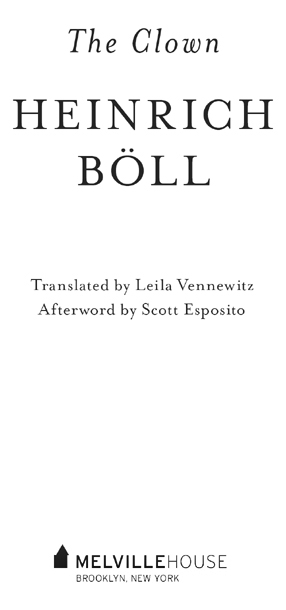
The Clown
Originally published in German as Ansichten eines Clowns by Heinrich Bll
1963, 1985, 2007 by Verlag Kiepenheuer & Witsch GmbH & Co. KG, Cologne, Germany
Translated by Leila Vennewitz
Afterword Scott Esposito, 2010
Melville House Publishing
145 Plymouth Street
Brooklyn, NY 11201
www.mhpbooks.com
The Library of Congress has cataloged the paperback edition as follows:
Bll, Heinrich, 1917-1985.
[Ansichten eines Clowns. English]
The clown / Heinrich Bll ; translated from the German by Leila Vennewitz.
p. cm.
eISBN: 978-1-935554-85-1
I. Vennewitz, Leila. II. Title.
PT2603.O394A713 2011
833.914dc22
2010043889
v3.1
Translators Acknowledgment
I wish to express my deep gratitude for all the help
and advice given me in this translation by
my husband, William Vennewitz.
Leila Vennewitz
Vancouver, Canada
by Scott Esposito
for Annemarie
To whom he was not spoken of, they shall see:
and they that have not heard shall understand.
Romans XV, 21
It was dark by the time I reached Bonn, and I forced myself not to succumb to the series of mechanical actions which had taken hold of me in five years of traveling back and forth: down the station steps, up the station steps, put down my suitcase, take my ticket out of my coat pocket, pick up my suitcase, hand in my ticket, cross over to the newsstand, buy the evening papers, go outside, and signal for a taxi. Almost every day for five years I had left for somewhere and arrived somwhere; in the morning I had gone up station steps and down again, in the afternoon down the steps and up again, signaled for a taxi, felt in my pockets for money to pay for my ticket, bought evening papers at kiosks, and savored in a corner of my mind the studied casualness of these mechanical actions. Ever since Marie left me to marry Zpfner, that Catholic, these actions have become more mechanical than ever, but without losing any of their casualness. There is a way of calculating the distance from station to hotel, from hotel to stationby the taxi meter. Two marks, three marks, four marks fifty from the station. Since Marie has been gone I have sometimes slipped out of the rhythm and confused the hotel with the station, I would start looking for my ticket as I approached the hotel porter or ask the ticket collector at the station for my room number, somethingfate perhapsmust have made me remember my profession and my situation. I am a clown, official description: comedian, no church affiliation, twenty-seven years old, and one of my turns is called: Arrival and Departure, a long (almost too long) pantomime during which the audience confuses arrival and departure all the way through. Since I usually go over this number once more in the train (it consists of over six hundred gestures, and I have to know their sequence by heart, of course), it is not unnatural that now and again I fall victim to my own imagination: rush into a hotel, look round for the departure board, find it, run up or down a flight of steps so as not to miss my train, while all I have to do is go to my room and get ready for the performance. Luckily they know me in most of the hotels. Over a period of five years a rhythm develops with fewer possibilities of variation than one might supposebesides, my agent, who is familiar with my idiosyncrasies, sees to it that there is a minimum of friction. What he calls the sensitive soul of the artist is fully respected, and an aura of well-being surrounds me as soon as I get to my room: flowers in an attractive vase, and, almost before I have thrown off my coat and tossed my shoes (I hate shoes) into a corner, a pretty chambermaid comes in with coffee and cognac and runs my bath, and the green bath salts she pours into it make it relaxing and fragrant. While I lie in the bathtub I read the papers, popular ones all of them, sometimes as many as six but at least three, and in a moderately loud voice I sing nothing but sacred songs: chorales, hymns, musical passages I recall from my school days. My parents, devout Protestants, subscribed to the postwar fashion of denominational tolerance and sent me to a Catholic school. I am not religious myself, I dont even go to church, and I make use of the sacred texts and songs for therapeutic purposes: they help me more than anything else to overcome the two afflictions Nature has saddled me with: depression and headaches. Since Marie went over to the Catholics (although Marie is a Catholic herself I feel this phrase is appropriate), the intensity of these two complaints has increased, and even the Tantum Ergo or the Litany of Loretotill now my favorite remedies for painare not much use any more. There is one temporarily effective remedy: alcohol; there could be a permanent cure: Marie. Marie has left me. A clown who takes to drink falls faster than a drunk tile-layer topples off a roof.
When I am drunk my gestures during a performance become confusedtheir only justification in the first place is their precisionand I fall into the most embarrassing trap to which a clown is ever exposedI laugh at my own tricks. A ghastly humiliation. As long as I am sober my stage fright increases till the moment I walk on (I generally had to be pushed), and what some critics have called that reflective, critical gaiety hiding a beating heart was nothing but the desperate icy control with which I turned myself into a puppet; it was terrible, incidentally, when the thread broke and I fell back on myself. I imagine monks go through a similar experience when they are in a state of contemplation. Marie always carried around a lot of mystical literature, and I remember the words empty and nothing occurred very often.
Font size:
Interval:
Bookmark:
Similar books «The Clown (The Essential Heinrich Böll)»
Look at similar books to The Clown (The Essential Heinrich Böll). We have selected literature similar in name and meaning in the hope of providing readers with more options to find new, interesting, not yet read works.
Discussion, reviews of the book The Clown (The Essential Heinrich Böll) and just readers' own opinions. Leave your comments, write what you think about the work, its meaning or the main characters. Specify what exactly you liked and what you didn't like, and why you think so.

